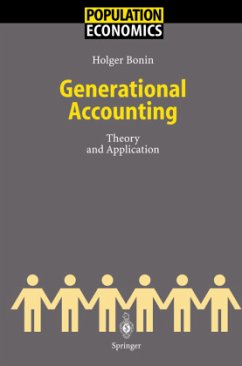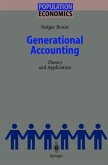Among the concepts used to assess the sustainability of fiscal policy in a changing demographic environment, generational accounting has become the most prominent. This book gives a complete and up-to-date introduction to the theory and practice of the method. It reveals deficiencies of the original residual concept and discusses various measures of intergenerational redistribution based on the recent sustainability approach to generational accounting. An application using data on German public finances serves to provide an in-depth explanation and practical illustration of the technique. The study develops new procedures to evaluate the fiscal externalities of migration and the redistribution of net wealth among living generations resulting from Social Security reform. The book is an indispensable source of reference for analysts employing generational accounting and for those wishing to study intertemporal redistribution through fiscal policy.
Hinweis: Dieser Artikel kann nur an eine deutsche Lieferadresse ausgeliefert werden.
Hinweis: Dieser Artikel kann nur an eine deutsche Lieferadresse ausgeliefert werden.









